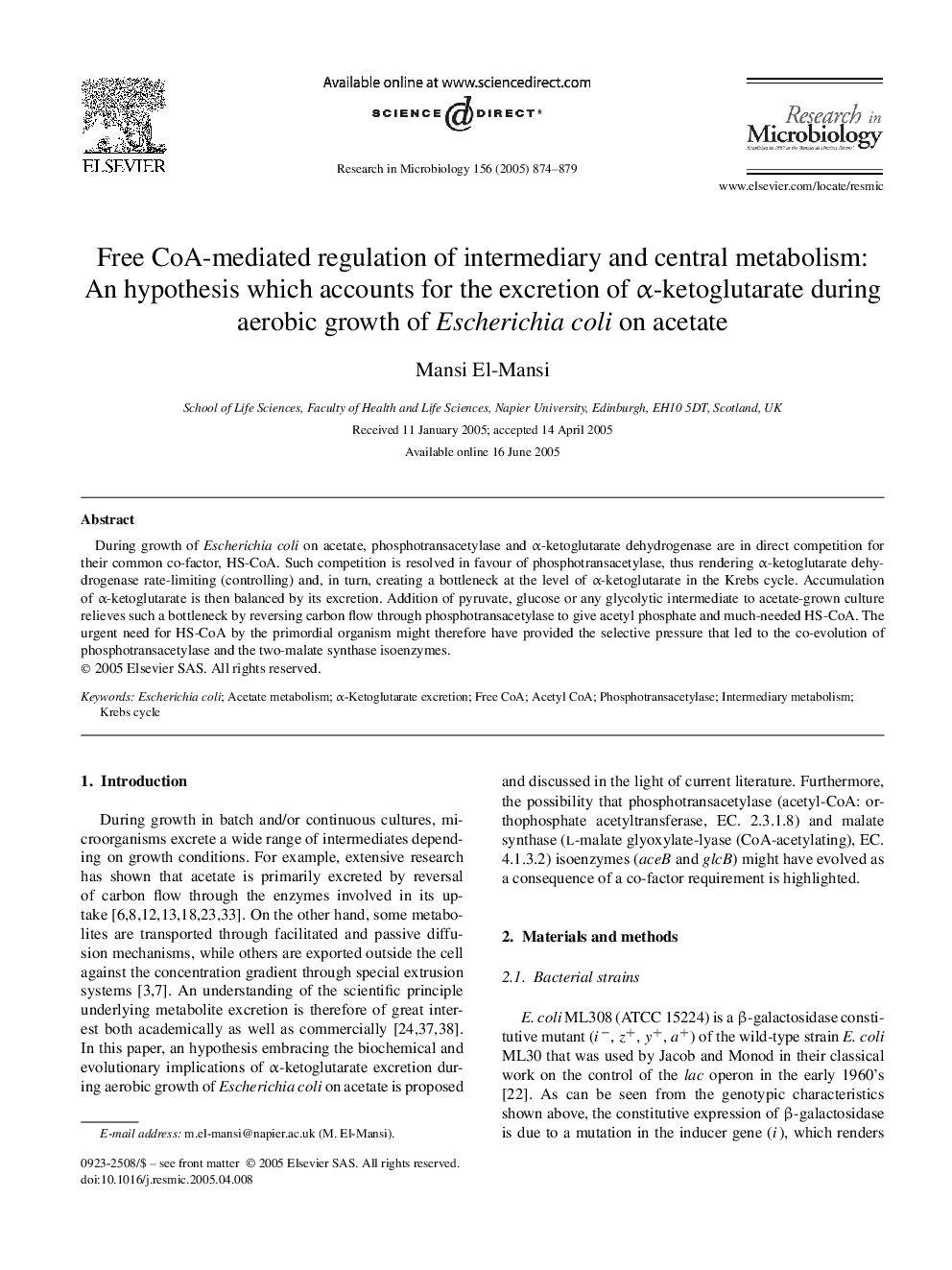| Article ID | Journal | Published Year | Pages | File Type |
|---|---|---|---|---|
| 9440093 | Research in Microbiology | 2005 | 6 Pages |
Abstract
During growth of Escherichia coli on acetate, phosphotransacetylase and α-ketoglutarate dehydrogenase are in direct competition for their common co-factor, HS-CoA. Such competition is resolved in favour of phosphotransacetylase, thus rendering α-ketoglutarate dehydrogenase rate-limiting (controlling) and, in turn, creating a bottleneck at the level of α-ketoglutarate in the Krebs cycle. Accumulation of α-ketoglutarate is then balanced by its excretion. Addition of pyruvate, glucose or any glycolytic intermediate to acetate-grown culture relieves such a bottleneck by reversing carbon flow through phosphotransacetylase to give acetyl phosphate and much-needed HS-CoA. The urgent need for HS-CoA by the primordial organism might therefore have provided the selective pressure that led to the co-evolution of phosphotransacetylase and the two-malate synthase isoenzymes.
Keywords
Related Topics
Life Sciences
Immunology and Microbiology
Applied Microbiology and Biotechnology
Authors
Mansi El-Mansi,
